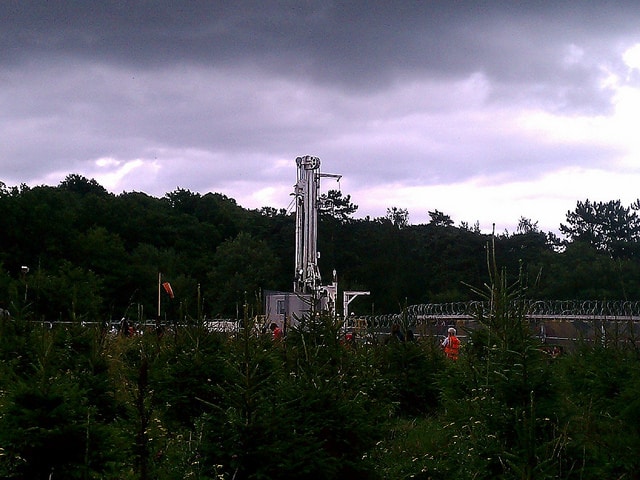Energy experts are warning that shale gas extraction will do little to solve Europe’s energy security in a new report published yesterday by the European Academies Science Advisory Council (EASAC).
The report says the potential for shale gas extraction in the EU is “uncertain” due to limited geological data on the accessibility of the gas and the fact that Europe’s geology is “more complicated” than in the United States.
It also raises doubts about claims that fracking will help mitigate global warming, adding that any large-scale operations will need broad public support and trust.
The EASAC report comes on the heels of another report by the government-funded UK Energy Research Centre (UKERC) which questions the government’s hype that fracking is “too big to ignore”.
This phrase was used by the Treasury to describe the potential of shale gas, the miracle new fossil fuel that advocates claim could reduce energy bills and secure energy independence for the UK.
Misleading Rhetoric
But Professor Jim Watson, research director of UKERC and author of the 12 November report on the future of gas in the UK, told BBC News that “Shale gas has been completely oversold. Where ministers got this rhetoric from I have absolutely no idea. It’s very misleading for the public.”
The two reports’ findings clearly contradict the government and industry’s campaign claiming that fracking is the saviour of the UK’s energy future.
Watson continued: “Looking at the evidence base, it’s very hard to support some of the statements made both by industry and some politicians that it’s going to bring down prices, strengthen energy security or create jobs through cheaper energy any time soon.”
“It may have an impact. But a lot depends on how fast shale develops,” he added.
Earthquake regulations
Meanwhile, fracking advocates have criticised the “ridiculous” regulations on tremors and earthquakes in residential areas this week. The strict controls surrounding potential tremors have “hindered shale investment”, according to academics Dr Rob Westaway and Professor Paul Younger of the University of Glasgow’s School of Engineering.
Calls for regulations to be relaxed have followed, describing the current situation as equivalent to “banning buses from driving past houses” or “the slamming of a wooden door”.
The Glasgow study mirrors the conclusion of a report submitted by fracking company Cuadrilla, which requested a much higher limit: 1.7 on the Richter scale. It is currently set at 0.5.
This is irrespective of reports this year from the US highlighting the connection between fracking which involves pumping water, sand and chemicals into the ground at high pressure to hydraulically fracture rocks—and earthquakes across the region .
Tremors were also recorded in Blackpool, where ongoing Cuadrilla fracking operations were blamed for earthquakes reaching 1.5 and 2.3 on the Richter scale in 2011.
Professor Younger said that if regulations were lifted to cater for the maximum expected 3.7 level of seismic activity from fracking, it “might be sufficient to cause minor damage on the surface such as cracked plaster”.
Younger also suggested that, as compensation schemes are in place for damage caused by the Royal Air Force practising low-level fly-bys, it would “make sense for similar schemes to be put into place for fracking”.
So adamant is the industry that fracking must exist in the UK, that the US energy industry sent their very own heavyweight champion of shale gas, Chris Faulkner, the ‘Frack Master’, to a debate sponsored by npower in London last week.
Faulkner spoke of his worries that events in Denton, Texas – the birthplace of fracking would inspire anti-fracking movements here. The Texan residents voted to ban fracking on 4 November in the face of overwhelming industry pressure.
Photo: tacac0
Subscribe to our newsletter
Stay up to date with DeSmog news and alerts







